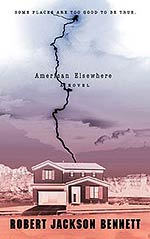
![]() verkisto
verkisto
7/26/2016
![]()
Good horror requires two things. The first is something to fear. That's obvious. The second part, though, is what's most important -- anticipation. Remember that shock video that made the rounds on the Internet way back when, where you'd watch the car drive around the corner behind the trees, and then when you expected it to come around the corner, something jumped out and scared the crap out of you? That was the anticipation at work, in a couple of ways. First, you knew something was going to happen; as I recall, the description told you there was a ghost in the video. So you wound up watching closely, and then as the car disappeared behind the trees, the most important thing happened. At the rate of speed the car was driving, when it went behind the trees, you expected it to come out at a particular time, but it didn't. There was a half-second where you expected the car, when you were most keyed up, and that was when the face popped up. And as tons of reaction videos attest, it worked remarkably well at scaring people.
American Elsewhere succeeds at being good horror. The novel starts off with some weirdness, but it doesn't give you everything you need to know behind that weirdness. Bennett doles out the information piecemeal, from chapter to chapter, through odd events that still don't quite answer all your questions, but at least reveal a little bit more of the mystery behind Wink, the town where the story takes place. With every hint is another question, and it isn't until you near the final third of the book that you start to get a real sense of what's happening. Up to that point -- and even further along -- the weirdness keeps you a little uneasy, and makes you a little jumpy. Or maybe it was just me who didn't want to go walking through my house alone in the dark at the time.
Wink, the aforementioned town where the story occurs, is a strange town with a pink moon, odd inhabitants who don't act like they should, where the cars, television shows, and architectural design are all straight out of the 1950s. When Mona Bright, a, ex-cop who's been living a rough life for some time, inherits a house in the town of Wink, she arrives and becomes the eyes through which we start to experience this weirdness. She serves as a good conduit for showing us the oddness through the eyes of one of us, but as a character, she's not quite what I expected.
Mona just isn;t that deep. She seems to be a walking cliche, the woman cop who's more gruff and tough than most male cops, because she has to be. She doesn't take crap from anyone, she doesn't take kindly to fanciful explanations for what's happening in Wink (even after she experiences it firsthand), and she refuses to listen, though she does like asking "The fuck?" over and over again. She's nearly intolerable, and it's an odd choice to make her the protagonist. Even the subplot where she's determined to find out more about her mother, who left her the house, isn't interesting enough to give her much depth. Parson, on the other hand, is one of the odd inhabitants of Wink, and he begins the story as a man without personality, who winds up being a more clearly defined, more interesting character, than Mona, our protagonist. And when the guy with no personality is better drawn than your main character, something's not right.
Regardless, the story is well told, and does a great job of giving a reader that sense of other-worldly horror that Lovecraft accomplished. As such, it's hard to pin down the book as horror or science fiction, but I feel safe in saying that anyone who likes Lovecraft's ideas will like this novel. Thankfully, it's more readable and compelling than Lovecraft's works. I'm curious to read something else that Bennett wrote, as the blurbs on the back of this book have good praise for his other works.